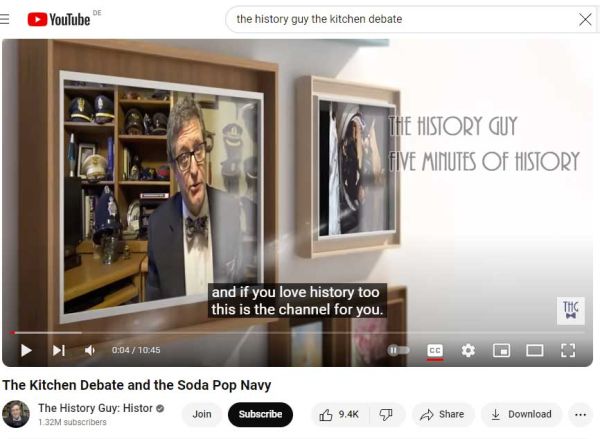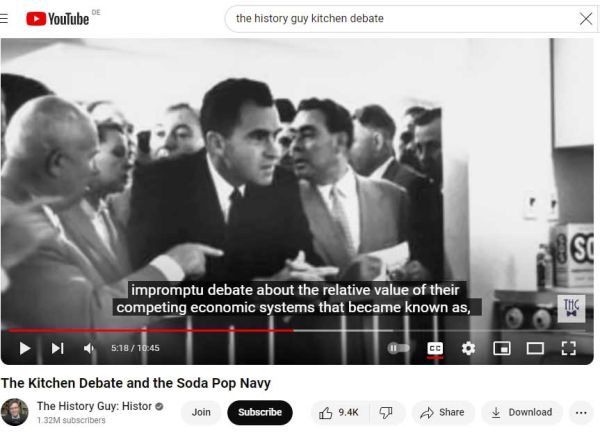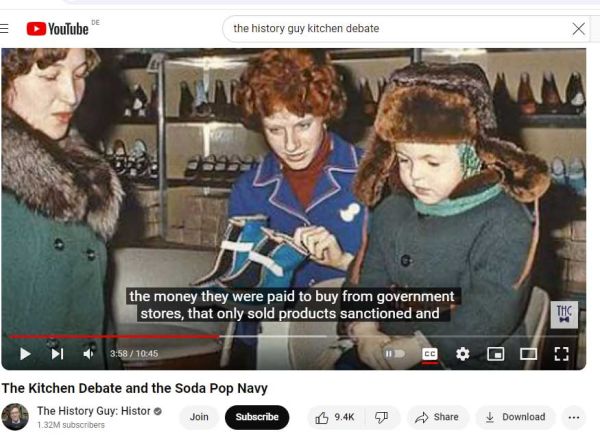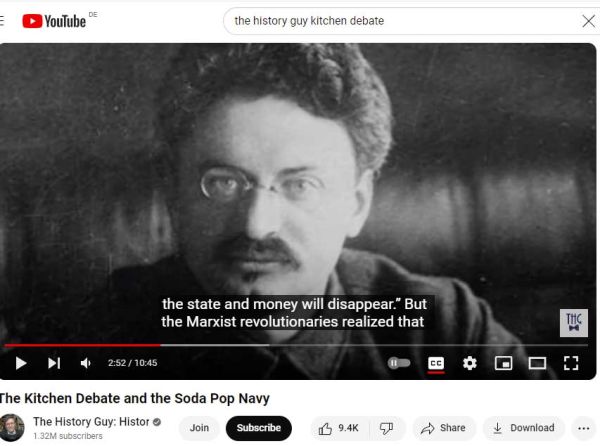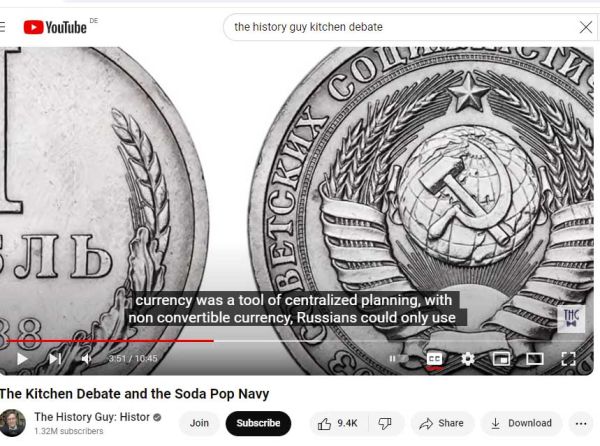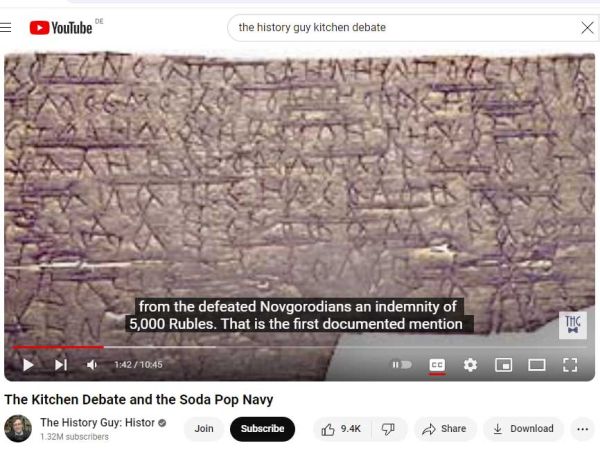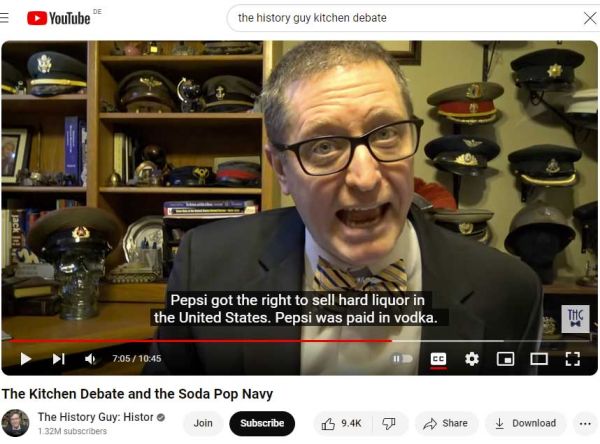The Art of Changing Currencies-3: The History Guy
I stumbled onto The History Guy (THG) last year and enjoy his videos on YouTube very much. THG speaks animatedly about events in history that interest him, stares with little visible effort into the camera, as if trying to convey to the viewer how interesting history really is, and he does not appear to use a teleprompter. If he did, the teleprompter would surely reflect off his huge glasses.
I found the THG again because I am interested in the "Kitchen Debate" of 1959, when Vice-President Richard Nixon accompanied an American exhibit of consumer-products to Moscow, Russia. The Eisenhower Administration hoped that the Soviets would see America's interest in producing washing-machines, toasters, and TV sets, and comprehend that America consists mostly of a consumer culture, and that nothing makes us happier than to have helpful gadgets in the kitchen.
Soviet Premier Nikita Khrushchev accompanied Nixon from one American exhibit to the other, while they argued heatedly about which nation had the superior culture. More than 2.5 million Russians had paid the 1-Ruble admission price, and were obviously impressed by the quantity of American gadgets. They lined up around the block to get a free cup of Pepsi Cola from the Pepsi exhibit. The popularity of Pepsi made Khrushchev defensive as hell. He also sweated profusely; so Nixon handed him a cup of Pepsi.
No one knows how much Khrushchev liked Pepsi, but the net result of the Pepsi exhibit was a request from the Soviet government to import Pepsi! This was nearly a revolution in itself! The Soviet Union did not import anything from other nations, especially not from the Capitalist-Devil United States! THG says that Soviet leaders had made their nation a self-contained area, with little trade from outside.
The Soviet (i.e. Marxist) position was that money (capital) would soon lose its importance. No one would need to speed up the process. The passing of history would assure the Marxist result in due time. So the Soviets had never bothered to reach any kind of monetary agreement with other nations, concerning trade. THG explained that money for the Soviets served only as "a tool of centralized planning."
So how would the Soviets pay for all that Pepsi? They possessed only non-convertible currency, the Soviet Ruble. This interested THG very much because the Russian Ruble is one of the oldest currencies on the planet. Its use goes back to documents carved into birch-bark, dating from 1100-1300 a.D. The term "Ruble" served as a measure of silver, THG says. Since treaties often involved an exchange of goods, they often mentioned "Ruble" in connection with the value of the treaty. Researchers and museums have found 700 of these birch-bark documents. How curious that the Soviets would risk their survival on something as crazy as a moneyless society. History had already ruled long before on the importance of money.
The Soviets and Pepsi eventually agreed that they would barter their Stolichnaya Vodka for Pepsi; and so Pepsi entered the liquor business as the sole importer of Stolichnaya outside of the Soviet Union, much to the relief of Vodka lovers! But seventeen years later, as Pepsi operations in Russia widened, the new Russian government under Mikhail Gorbachev found it could not afford to pay only in Vodka; so the desperate Russians offered to sell Pepsi some of its warships. Pepsi ended up purchasing a navy, including 16 submarines! Journalists called it the "Pepsi Navy," and joked that Pepsi could now sink ships carrying Coca Cola to Russia!

